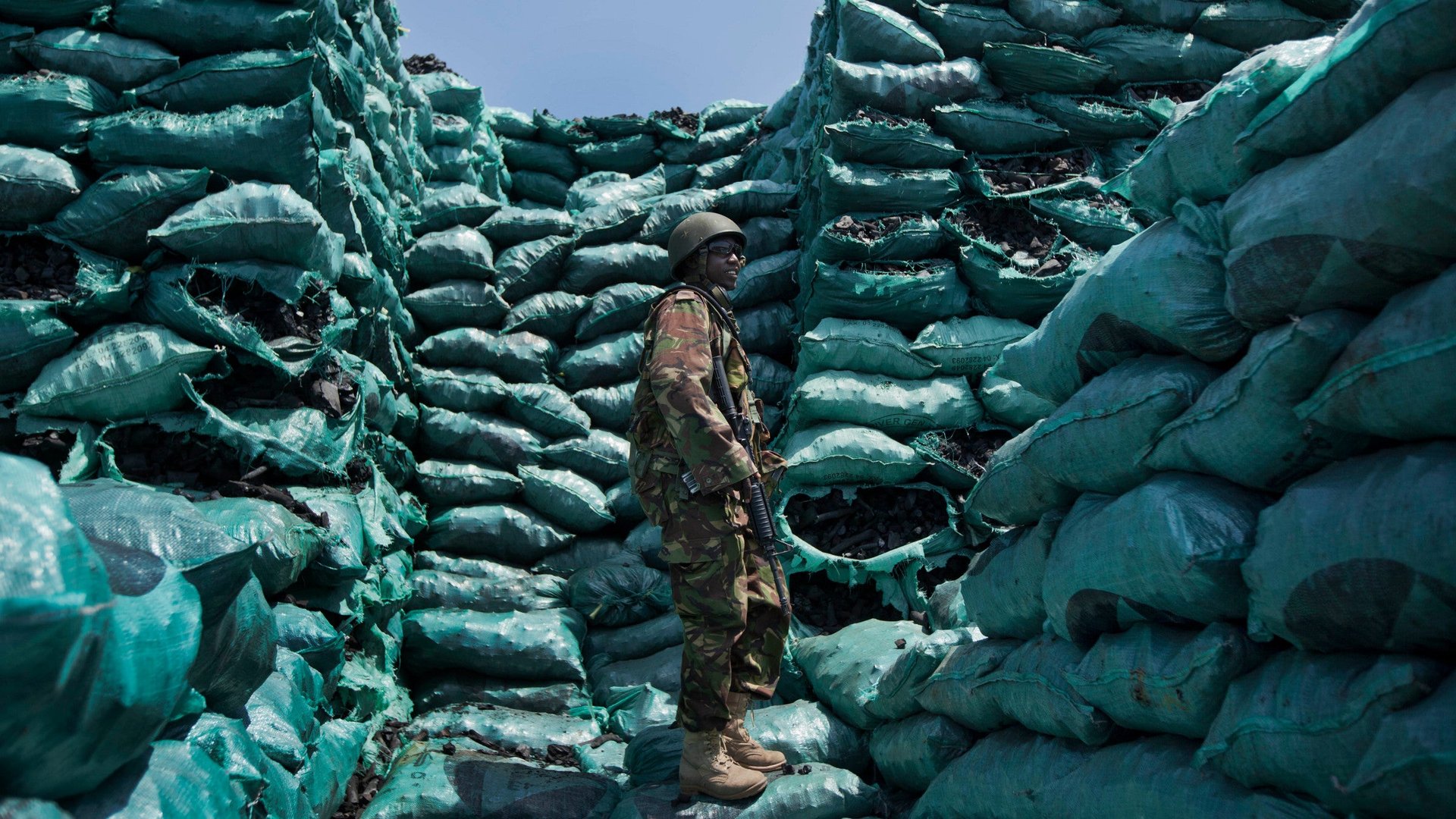The four-million-sack charcoal glut that is Somalia’s reward for UN anti-terror sanctions
Dozens of empty boats are waiting. Five thousand workers are waiting. Most importantly, four million sacks of charcoal, worth some $40 million, are waiting for the United Nations to lift a charcoal embargo imposed on Somalia, one of the world’s most troubled countries.


Dozens of empty boats are waiting. Five thousand workers are waiting. Most importantly, four million sacks of charcoal, worth some $40 million, are waiting for the United Nations to lift a charcoal embargo imposed on Somalia, one of the world’s most troubled countries.
Somalia has plenty of problems, from famine to the lack of government control to the Shabaab, a militant Islamist group connected to al Qaeda. African Union peacekeepers, backed by the United Nations, have sought to unseat the extremists. At the request (pdf) of Somalia’s transitional government, the UN banned charcoal exports from Somalia, which the Shabaab had taxed to raise some $25 million in 2011.
Now a group of Western-supported militias have driven the Shabaab out of the southern port city of Kismayo, the hub of the country’s charcoal exports, but the ban on exports remains in place. Development organizations are skeptical of charcoal as a cooking fuel because it is often used indoors in Africa, which leads to poor health. It also imperils food supplies in general by reducing agricultural land and accelerating deforestation (the charcoal is produced from chopped-down trees), not to mention climate change. Getting cleaner fuels into Africa’s homes is a touchstone of Western aid programs.
But charcoal production is also a large source of income for unskilled workers, and locals warn that if the UN doesn’t quickly restore the industry, Somalis could turn against the peacekeepers. While economic sanctions like these have become part of the modern way of war (one of the reasons we live in the most peaceful age in history), when replacing bullets with bank bans, the human costs become harder to count.
It’s a reminder that economic sanctions are blunt weapons. They can drive a country like Iran into a recession or weaken a group like the Shabaab, but shifting even “targeted” sanctions in an efficient way is no easy task. The African Union requested that the embargo be lifted six weeks ago, but action still has yet to be taken, and the charcoal piles up.